BigCommerce's B2B Capabilities: A Guide for B2B eCommerce Businesses
B2B eCommerce businesses need powerful platforms to manage their operations and deliver memorable customer experiences — BigCommerce can be the solution.
12 min read
 Tim Bucciarelli
:
March 9, 2023
Tim Bucciarelli
:
March 9, 2023

Choosing the right B2B eCommerce platform requires a careful analysis of your business needs in terms of functionalities, integrations, and budget.
In this post, we help you compare top-rated B2B eCommerce platforms by:
1. Magento Open Source
2. Adobe Commerce
3. BigCommerce
4. Shopify Plus
5. SAP Commerce Cloud (formerly SAP hybris)
6. Salesforce B2B Commerce Cloud
After working extensively with dozens of eCommerce businesses, we’ve narrowed down the six best eCommerce platforms on the market. We’ll review each of these tools, looking at their customization, hosting, security, internationalization, and budget. We will also highlight some key features and differentiators of each platform.
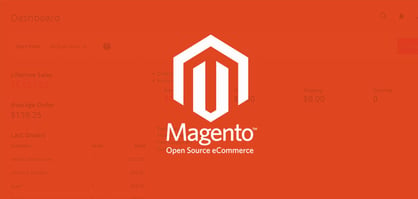
Magento Open Source is the free version of Adobe’s commerce platforms. It’s a robust platform with a vast range of eCommerce features, making it suitable for eCommerce businesses that demand extensive customizability and prefer to avoid ongoing licensing and revenue-linked fees.
Magento Open Source has been on the eCommerce market since 2008. It has a global community of developers who have built a marketplace of extensions and tools to help other developers working with the Magento Open Source platform.
Some of the key features Magento Open Source provides include:
While the platform is free, it requires an experienced Magento developer to build out the site, add custom modules and integrations, implement updates, and maintain the site. If you don’t have an in-house developer or the resources to hire an agency, this option is not your best fit.
Read more: How to Choose a Dedicated Magento Developer | Best Practices
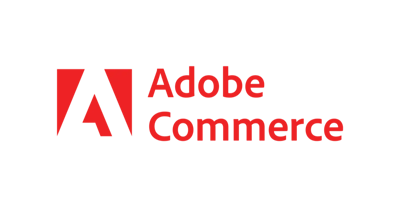
The Adobe Commerce platform — the “upgraded” version of Magento — includes the same unlimited customization options and scalability as that platform. It also includes the latest and greatest platform functionality and core code support from Adobe. This platform is a versatile, all-in-one B2B eCommerce platform that allows you to build and manage advanced, complex eCommerce stores efficiently.
Note: Adobe offers Adobe Commerce and Adobe Commerce Cloud — the difference between the two is that Adobe Commerce Cloud includes cloud hosting.
Here are a few key features that make Adobe Commerce worth considering:
Overall, Adobe Commerce is built for eCommerce businesses that need robust B2B features, scalability, and peace of mind with Adobe’s support. It’s important to understand that even with Adobe’s support, your site will still need development work that will require your business to partner with an experienced Adobe Commerce agency to manage your custom code.
Read more: Adobe Commerce Agency: IronPlane’s Process, Projects, and Results
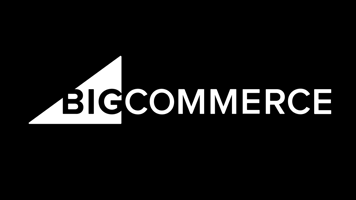
BigCommerce is a popular SaaS-based eCommerce platform that offers a B2B version at the enterprise license level. This platform offers similar functionality to the Adobe platforms described above, but with limited multi-site and international capabilities and substantially fewer customization opportunities. The primary advantages of BigCommerce are its robust native functionality, its high degree of usability, and its flexibility for integrations.
Some stand-out features on BigCommerce’s platform include:
Read more: BigCommerce vs Magento: Which Is Right for Your Business?

Shopify Plus is another SaaS-based eCommerce solution designed to support enterprise businesses. It comes with an easy-to-use website builder and native flow software so you can automate repetitive and high-performing workflows. Shopify Plus is a great B2B platform for stores that are looking to build out their site quickly and don’t require a lot of customization — but if you need more flexibility regarding product variations, integrations, multilingualism, and multi-store support, this might not be the best option for you.
A few important notes on Shopify Plus:
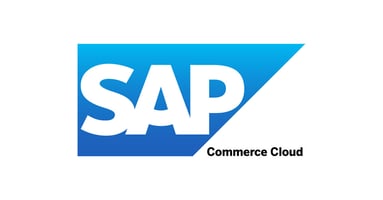
SAP Commerce Cloud is the eCommerce engine for the enterprise-grade offerings from SAP. After acquiring hybris in 2013 to be its primary eCommerce platform, SAP rebranded it as SAP Commerce Cloud. It’s one of the more complicated eCommerce solutions and is mostly recommended for enterprise organizations that demand a highly custom solution for the online business and have extensive internal developer resources for ongoing management and maintenance of the platform.
SAP Commerce Cloud can integrate with various other SAP components to offer a comprehensive omnichannel eCommerce solution including sales, marketing, and customer service. With its heavy focus on sales and customer-centric features, SAP Commerce Cloud is well-suited for large B2B brands looking to run huge marketplaces, sell across multiple channels, attract new customers, and drive sales.
Here are some key features that SAP Commerce Cloud offers:
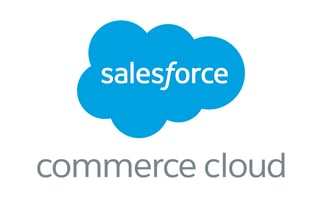
Salesforce B2B Commerce is an enterprise B2B eCommerce platform that provides ready-to-use services for business buyers such as distributors, manufacturers, and dealers across different verticals. Similar to SAP Commerce Cloud, which was previously hybris, Salesforce Commerce Cloud was previously Demandware. One of the key differentiators for Salesforce Commerce Cloud is that it is built as the commerce arm of the industry-leading sales enablement and CRM technology platform, Salesforce.
The range of features and B2B capabilities that Salesforce B2B Commerce offers is extensive. It’s a solid platform for businesses that have large cart sizes, process large volume orders, and want to maintain a high-quality customer shopping experience for their users.
Salesforce B2B Commerce provides some out-of-the-box features such as:
When comparing B2B eCommerce platforms, the first step is to select the right criteria. Check out this quick list of B2B eCommerce functionalities and considerations to make sure you choose the platform that works best for your business.
One of the key considerations when comparing B2B eCommerce platforms is flexibility. If you want the freedom to make extensive customizations to your site, it’s important to factor in B2B platform agility.
For instance, can you customize the online product catalog based on user interaction? Or can you create customized pricing and billing options for different user groups? Can you implement multiple sites for different customer groups or for international clients? A fully customizable B2B eCommerce solution lets you build out custom modules and integrations to better support buying experiences and backend operations.
Some B2B eCommerce platform solutions include cloud hosting (like Adobe Commerce Cloud or SaaS eCommerce engines like Shopify), while others let you choose your ideal hosting provider. Self-hosted options such as Magento Open Source offer more personalized flexibility for unique infrastructure needs.
For example, consider companies that conduct business in the EU: while the most popular SaaS platforms satisfy the broad GDPR requirements, there may be industry- or product-specific requirements for privacy and security that only a customized hosting environment can provide.
Each B2B eCommerce platform requires varying levels of developer knowledge to build and maintain. Assess whether your in-house team can build out your online storefront and keep up with the latest updates of your eCommerce platform.
The right B2B eCommerce platform should have all the essential features you need to best represent your business offerings and support your customers’ buying journey.
These may include (but are not limited to):
You should also consider your plans for future growth, as some platforms will offer greater scalability over time. Setting your storefront up for success when it comes to expansion can decrease the possibility for issues down the road.
Robust security protocols protect your eCommerce site’s sensitive data, encrypt transactions, eliminate cross-site forgery, and provide control over user access and permissions. Some key security features to look for while comparing B2B eCommerce platforms include:
If you operate multiple brands, websites, or storefronts, it’s critical to integrate localization features to drive higher conversions. This means your B2B platform should adapt to multiple languages, various currencies, taxation, and locations without deploying major changes to the source code.
There are multiple costs associated with a B2B eCommerce platform, such as license fees, hosting, themes, development, extensions, and maintenance. Additionally, some eCommerce platforms work on revenue- or transaction-based fee structures, so you’ll need to pay a certain percentage of your monthly revenue to your eCommerce platform.
With each of these factors in mind, it is essential for you to build a total cost of ownership (TCO) model for your business. To do this, we recommend a 6-year future view with your anticipated business growth and all anticipated costs for each eCommerce platform under consideration.
Once you’ve shortlisted two to three eCommerce platforms, it’s time to see how well they align with your business goals. To continue comparing B2B eCommerce platforms, we recommend you follow these best practices:
Start your research by reading reviews online. Check out reliable third-party review platforms such as Gartner, G2, and Capterra to find reviews from verified buyers. Do a keyword search and look for the specific technology/skill you want in your future eCommerce platform. Also, be sure to filter reviews so you’re looking at feedback from B2B businesses (as most reviews will be relevant to B2C buyers). Make sure you factor in both pros and cons while evaluating a platform.
In addition, go through case studies and read customer testimonials to further assess each platform. Once you’ve narrowed down a few options, schedule consultation calls or chat with their customer support to understand their features and pricing.
Many businesses end up choosing a B2B platform that fits their current needs, but later down the road, experience issues with customizations, integrations, and scalability. This often leads to re-platforming. For example, if a platform is too complex to use, lacks flexibility, requires extensive resource allocation, or has expensive costs in the long term, you may need to switch platforms.
To avoid re-platforming, it’s critical to assess your current needs and anticipate your future goals. Think about how your team size, target market, budget, and security compliances might impact your online store in the long run. Then, assess which B2B eCommerce platform is flexible enough to scale well with your business needs.
Agencies that have worked with a variety of B2B businesses and eCommerce solutions have the experience to help you assess the eCommerce platforms you’re considering.
As eCommerce platforms evolve, compatibility with multiple systems is becoming less of an issue, but you still want to ensure that the platform you’re considering can interface with other applications you already have in place. Remember, your business needs should drive the technology (not the other way around).
In the B2B eCommerce platform space, the total cost of ownership can vary dramatically from platform to platform in terms of:
B2B organizations approach eCommerce differently — they have unique requirements, such as the ability to conduct business internationally, the need for more advanced customized features, and stronger security requirements. Some of the business types that fall into this category include:
Manufacturers use raw materials, parts, and manual labor to produce finished goods on a large scale. A pure-play B2B model involves selling finished goods to other manufacturers, suppliers, or wholesalers.
Wholesale eCommerce is a B2B eCommerce model where products are sold on a large scale to other businesses at a discounted rate.
Service providers create services for other businesses and organizations. This includes software as a service (SaaS), marketing agencies, and businesses that create and sell various supplies.
These types of B2B businesses typically design and build customized commercial applications including web and mobile applications for other organizations. For example, accounting software, customer relationship management (CRM), payroll software, database software, etc.
Business marketplaces are virtual spaces where buyers connect with other businesses who want to purchase their products or services. For example, Amazon, eBay, and Craigslist.
Read more: B2B Magento Developer: IronPlane’s Approach
Still need help comparing B2B eCommerce platforms? IronPlane’s team of experienced Magento, Adobe Commerce, and BigCommerce developers have worked with B2B eCommerce businesses across different verticals.
Note: If you already have an eCommerce site, we can conduct a free audit to learn more about the challenges you’re experiencing and help you determine if you need to re-platform or optimize your existing site.
After some upfront research, our team of experts can work with you to determine the best eCommerce solution for your business needs by:
For example, we recently partnered with Omni International, a global manufacturer and distributor of laboratory homogenizers, consumables, and accessories, to migrate their eCommerce store and prepare their site for future builds.
.png?width=393&height=200&name=b2b-ecommerce-platform-comparison%20(1).png)
When Omni International approached our agency, their site was built on Magento 1, so their first big goal was to migrate their online store to Magento 2. However, they also wanted to:
To kick off our work together, we conducted a thorough analysis of their existing website and helped Omni International determine that Magento 2 fulfilled all of their criteria. After confirming it was the best choice to achieve Omni International’s goals, we mapped out a process to complete the migration. We also implemented Magento’s B2B Commerce edition to support both add-to-cart and add-to-quote functionality, so different customer groups could get a tailored shopping experience.
By the end of the project, Omni's customers could easily navigate to Omni International’s different products and resources, explore accessories and product bundles, read related SKUs and research publications for each product, and request formal quotes.
These changes (and more) helped Omni International drive the following results:
You can read the full Omni International case study here.
Here are the three main benefits of an eCommerce platform for B2B:
The biggest risks of eCommerce for B2B businesses are:
Shopify Plus can be used for B2B businesses without extensive customization requirements, but it’s not suitable for businesses requiring efficient interaction between the eCommerce platform and their internal systems. Also, Shopify Plus is tied to a company’s online revenue, so it’s important to compare different B2B eCommerce platforms to find the one that best fits your needs.
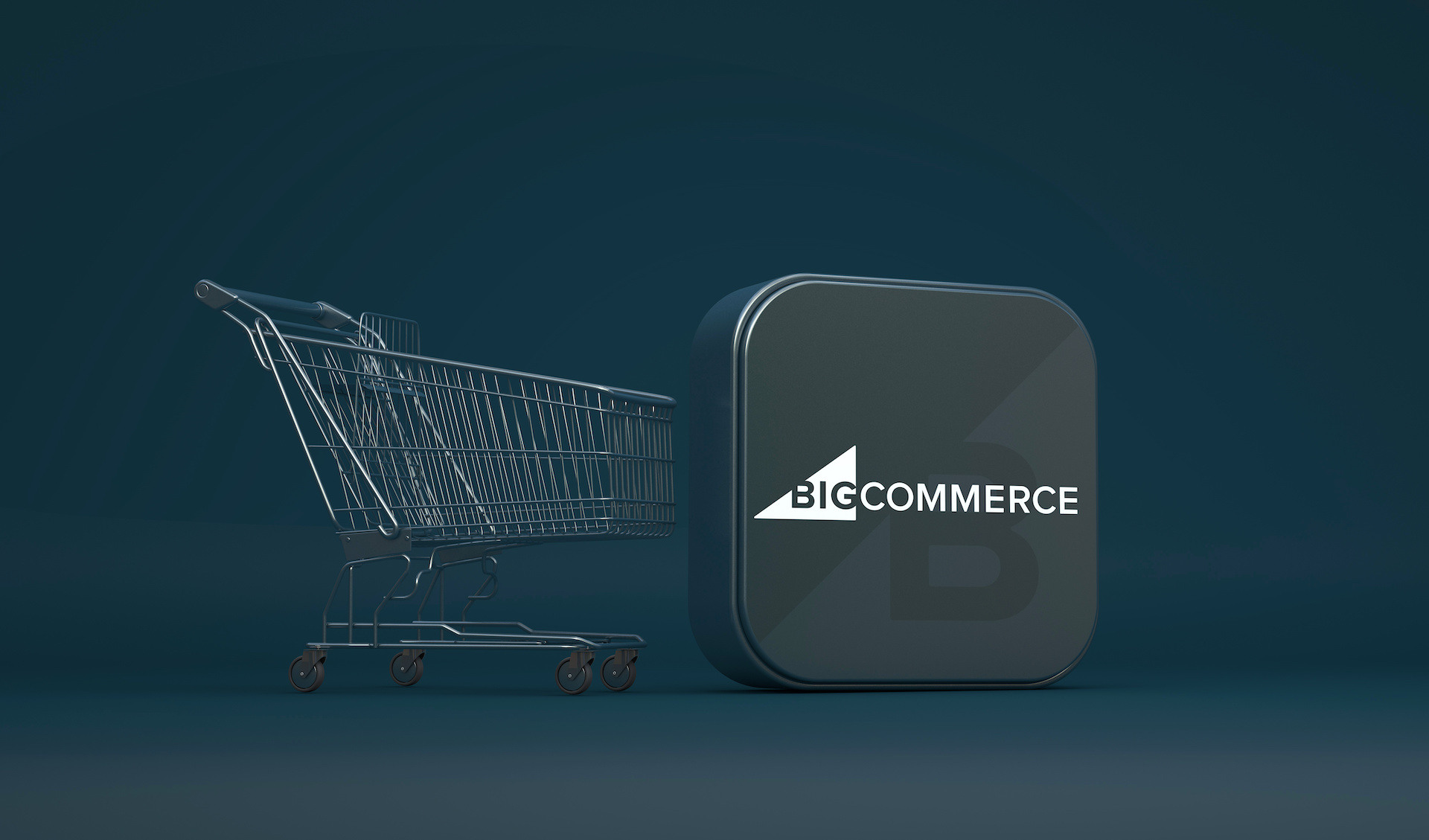
B2B eCommerce businesses need powerful platforms to manage their operations and deliver memorable customer experiences — BigCommerce can be the solution.

Explore the key features, strengths, and other important takeaways of the top 8 enterprise-level eCommerce platforms on the market in this guide!

We compare Magento, Adobe Commerce, BigCommerce, and Shopify in depth, examining how each caters to automotive eCommerce merchants.